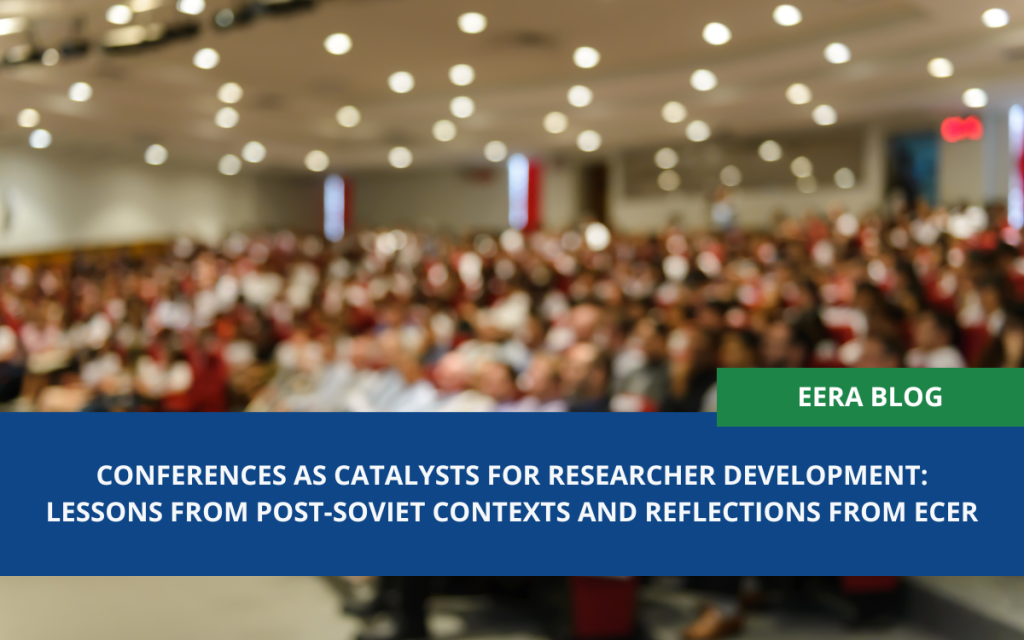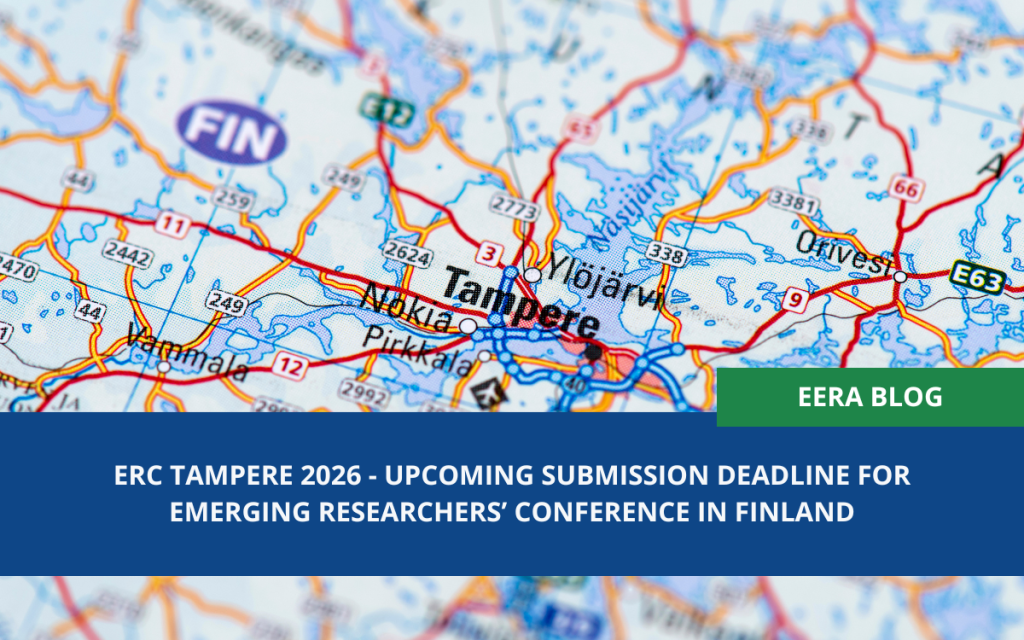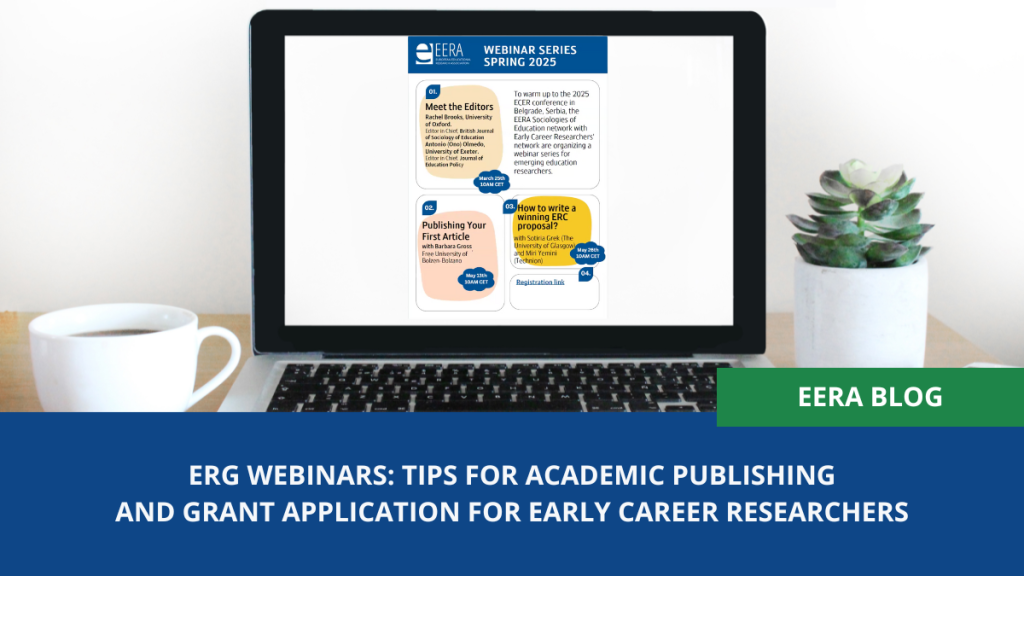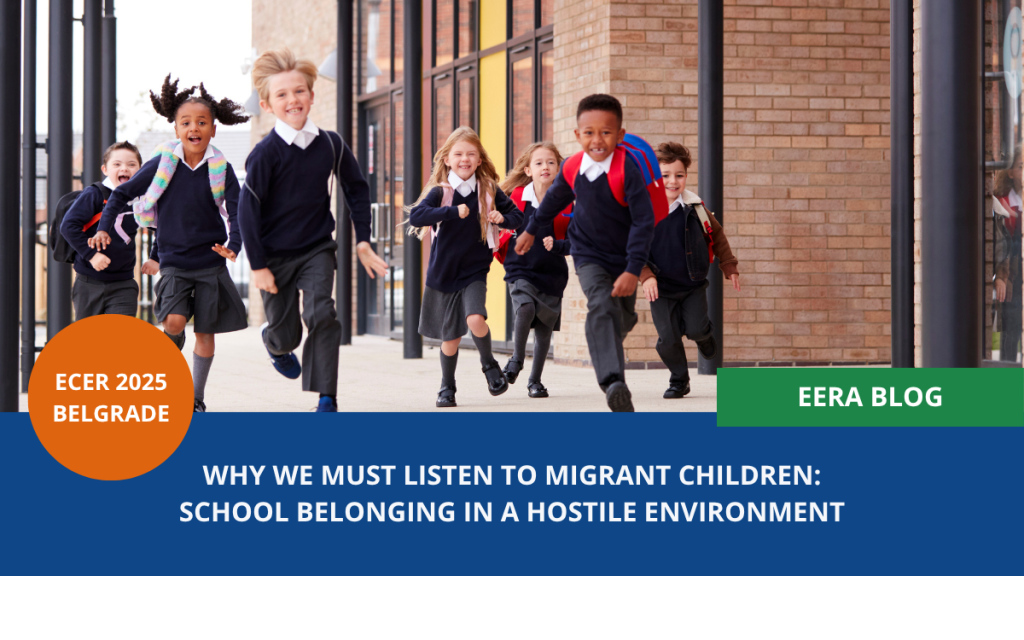Interview with Link Convenor 2019
Saneeya Qureshi talking about activities of the Emerging Researchers' Group
Play VideoMore on the ERG activities in EERA
Play VideoERGroup Objectives
The Emerging Researchers' Group aims to:
- provide a European research community for Emerging Researchers (including those undertaking a Doctorate)
- provide a forum for dissemination of Early Career Research at the Emerging Researchers´Conference
- offer support and guidance for article production via the 'Best Paper Award'
- offer support for researchers from low GDP countries to engage with ECER.
Its main strength lies in the support it offers to 'new' researchers in providing a space for discussion and collaboration with peers across Europe. In addition, it creates a new space in EERA which allows emerging researchers to be supported so that a strong, independent 'Emerging Researchers' forum will add to EERA's internal democratic accountability.
The Group will recruit members whose membership details will be held within the EERA database. The annual meeting is held at ECER each year; and year round contact is maintained between members through email and via the Emerging Researchers' Group website.
The Link Convenor, elected for a fixed term by the annual group meeting, will be co-opted onto the EERA Council for the period of their office and their travel expenses will be paid by EERA. The Convenor will be expected to represent the interests of 'new' educational researchers in Europe on Council.
Related Posts on the EERA Blog

A personal reflection on academic conference experience, comparing post-Soviet systems with modern conferences such as ECER, with advice for early-career researchers.
The post Conferences as catalysts for researcher development: Lessons from Post-Soviet contexts and reflections from ECER appeared first on EERA Blog.

The submission deadline for the Emerging Researchers' Conference in Tampere in 2026 is 31.01.2026. Find out the theme of the conference, and how to submit on our blog.
The post ERC TAMPERE 2026 – upcoming submission deadline for emerging researchers’ conference in finland appeared first on EERA Blog.

A serues of ERG webinars provided early career researchers with tips for academic publishing, journal selection, and grant writing to build their academic identity.
The post ERG Webinars: Tips for academic publishing and grant application for early career researchers appeared first on EERA Blog.

Across Europe, migration is increasingly politicised, creating challenging environments for migrants and their families. Thi Bogossian’s ethnographic research in a diverse English primary school reveals how education can act as an “oasis” of belonging for migrant children amid exclusionary politics.
The post Why we must listen to migrant children: School belonging in a hostile environment appeared first on EERA Blog.
The Emerging Researchers' Group runs a mailing list and invites researchers to join. To join the mailing list, send a blank message to erg-subscribe(at)lists.eera-ecer.de
Join the ERG platform "EERA Emerging Researchers' Group" on LinkedIn This space for the ERG has the purpose of being a more interactive platform where members can contact each other directly and where they may exchange information and resources. It will also provide information about the ERG activities.
ERG on the EERA Blog
Learn more about the Emerging Researchers' Group on the EERA Blog